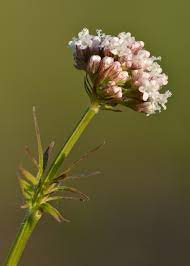Botanical Description:
Scientific Name: Asparagus racemosus
Common Names: Shatavari, Wild Asparagus, Satavar
Description:
Shatavari (Asparagus racemosus) is a perennial herb with a long history in Ayurvedic medicine. Known for its adaptogenic properties, Shatavari is revered for its potential benefits to the female reproductive system and overall well-being. Explore the traditional uses, constituents, and applications of Shatavari in this Materia Medica.
Disclaimer:
This Materia Medica is provided for informational purposes only and should not replace professional medical advice. Please consult with a qualified healthcare practitioner before using any herbal remedies.
Therapeutic Actions:
- Adaptogenic Properties:
- Shatavari is recognized for its adaptogenic properties, helping the body adapt to stress and promote overall balance.
- Female Reproductive Support:
- It is traditionally used to support female reproductive health, including menstrual cycle regulation and fertility.
- Digestive Health:
- Shatavari may have positive effects on digestive health, promoting gut function and reducing digestive discomfort.
- Immune System Support:
- Some traditional uses include Shatavari for immune system support, potentially enhancing the body’s natural defenses.
Constituents:
- Saponins:
- Shatavari contains saponins, compounds with adaptogenic and immune-modulating properties.
- Alkaloids:
- Presence of alkaloids contributes to Shatavari’s potential benefits for female reproductive health.
- Polysaccharides:
- Polysaccharides in Shatavari may contribute to its immune-enhancing effects.
Traditional Uses:
- Menstrual Health:
- Shatavari is traditionally used to support menstrual health, addressing irregularities and discomfort.
- Fertility Support:
- It is employed for fertility support, particularly in women, to enhance reproductive well-being.
- Postpartum Recovery:
- Shatavari is used in postpartum care to support recovery and lactation in new mothers.
- Stress Management:
- Some traditional applications include Shatavari for stress management and promoting emotional well-being.
Dosage and Preparation:
- Shatavari Powder:
- Shatavari is commonly consumed in powdered form. Dosage may vary, and it’s essential to follow recommended guidelines.
- Shatavari Capsules or Extracts:
- Standardized extracts or capsules are available. Dosages should align with recommended guidelines.
Cautions and Considerations:
- Pregnancy and Breastfeeding:
- While traditionally used postpartum, pregnant or breastfeeding individuals should consult with a healthcare professional before using Shatavari.
- Allergies:
- Individuals with allergies to asparagus should exercise caution when using Shatavari.
- Interaction with Medications:
- Those taking medications, especially hormone-related medications, should consult a healthcare professional before using Shatavari.
Conclusion:
Shatavari, with its adaptogenic properties and focus on female reproductive health, stands as a revered herb in Ayurvedic medicine. Whether supporting menstrual health, fertility, or postpartum recovery, Shatavari offers a holistic approach to well-being. This Exhaustive Materia Medica aims to provide comprehensive insights into Shatavari’s botanical description, therapeutic actions, constituents, traditional uses, dosage, precautions, and applications. For personalized guidance, consultation with healthcare professionals or herbalists is recommended to ensure safe and effective utilization of Shatavari as a herbal remedy.





